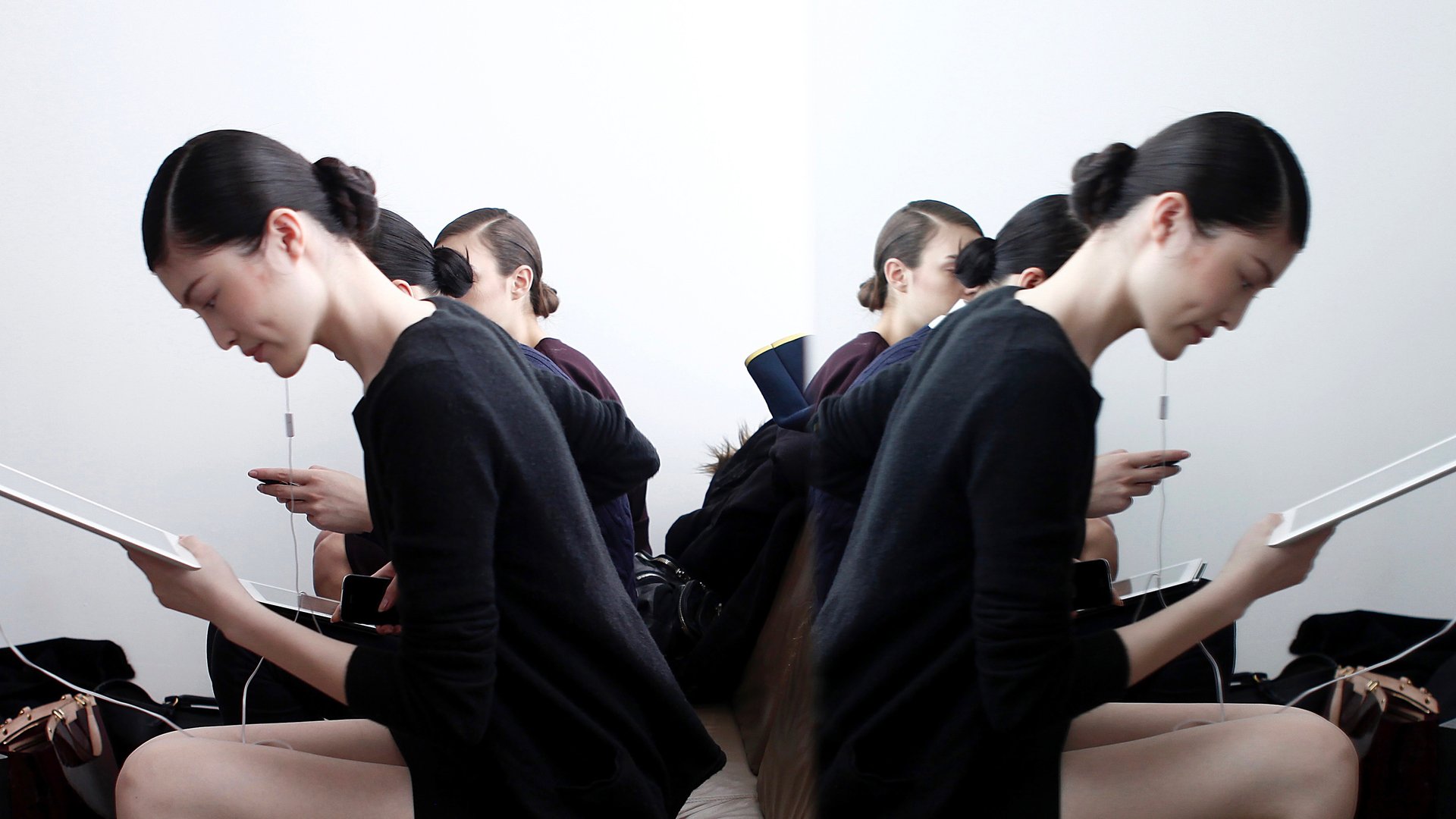A 60 Minutes story about gender equality accidentally proved the persistence of patriarchy
Good intentions are nice, but they aren’t enough, the TV news show 60 Minutes recently proved. The show’s producers apparently meant well when they decided to do a segment on women in technology and the gender gap, which aired March 4. But they ended up punching women in the gut, as the founder and CEO of Girls Who Code, Reshma Saujani, puts it in her response to the segment.


Good intentions are nice, but they aren’t enough, the TV news show 60 Minutes recently proved. The show’s producers apparently meant well when they decided to do a segment on women in technology and the gender gap, which aired March 4. But they ended up punching women in the gut, as the founder and CEO of Girls Who Code, Reshma Saujani, puts it in her response to the segment.
Ultimately, 60 Minutes featured a man, Code.org CEO Hadi Partovi. His organization’s mission is to expand access to computer science education in schools. Women technologists like Saujani who were tapped to appear on the show about a year ago and worked with producers to provide research and interviews, ended up on the cutting room floor while Partovi spoke on their behalf.
Here is the cruel irony: As a result, 60 Minutes’ segment was accidentally exceptionally effective—it proved that women in tech really can’t catch a break.
“It was patently ridiculous to see the network uplift a man as the leader of a movement to get more women into tech,” Saujani writes. “These omissions aren’t just an oversight. They are negligent, they are sexist, and they have consequences for efforts to close the gender gap in tech. And they are part of a long history of erasing the contributions of women in technology.”
Saujani expected that the network, and people in media generally, would be more cognizant of their biases, given all the talk of equality bandied about lately and the fact that CBS’ former CEO, Les Moonves, just resigned in September due to more than a dozen sexual harassment allegations. She was wrong.
And that, after all, is why organizations like hers exist. Because sexism persists even as we claim to be fighting it, and women’s voices are ignored even when they are the center of the story.
Ayah Bdeir, the founder of STEM learning toy company littleBits, also responded to the episode in a Medium post. She noted that she worked with 60 Minutes for a year, planning interviews, providing research, talking to the producers and reporters, telling her story and that of her organization, which is focused on closing the gender gap in technology. Yet producers wrote to her last August to say that the focus of the segment had shifted and that littleBits would no longer be central in the story.
In an email, a producer explained to her, “It’s not that the important points you made in your interview are ignored in the story, or that you didn’t make them very effectively, they’re just made by others.”
That the “others” ended up being a man whose organization isn’t explicitly focused on gender equality apparently didn’t bother the male producer who wrote to Bdeir. And she initially tried to rationalize the response, accustomed as she is to ignoring blows and moving forward. She explains:
I was in an undergrad class of Computer Engineering where less than 10 percent of students were women. I experienced all the buzzword-y things you hear about: social pressure to leave the field, difficulty being taken seriously as an engineer, difficulty raising money for my startup. I’ve never let these issues register in my brain, so they didn’t take up space. I decided to channel my frustration into a productive mission and learn how to navigate this world
But ultimately Bdeir felt that she could not explain away the show’s mistake, or blame herself, or her organization’s size, or the fact that English isn’t her first language. Indeed, the show’s producers had unintentionally demonstrated the very raison d’être of her organization.
Also problematic, the segment gave the impression that teaching girls in kindergarten to code is the solution to the gender gap in tech. However, as was made apparent by the episode that ultimately aired, the obstacles for women, including their failure to get deserved recognition or to be heard at all, persist throughout their careers in STEM. This was demonstrated, for example, when The Atlantic ran a story about the gene-editing technology CRISPR quoting six men even though two of CRISPR’s pioneers are women, an error the writer Ed Yong later acknowledged.
As Saujani of Girls Who Code puts it, “If 60 Minutes had included us, its viewers would have learned that—contrary to what was said in the program—introducing girls to computer science earlier on (i.e. kindergarten) isn’t enough to close the gender gap in tech. Girls need support systems all along the pipeline, and tech companies need to do their part to root out harassment and discrimination.”
Saujani and Bdeir argue—and it is hard to disagree with them— that 60 Minutes presented a picture of the problem of inequality in technology and who is working on solving it that only compounded the very issue it meant to illuminate. That happened because the producers didn’t really understand the problem to begin with and couldn’t imagine that they, with their unimpeachable intentions, could possibly be part of it. But they are, of course—we are culturally conditioned to consider men authoritative…even when it comes to discussing issues that only women experience, it seems.
“60 Minutes made it clear that they thought spokespeople were interchangeable; they are not. Who gets put on national television matters. Who tells their story matters. Who talks about their experience matters,” Bdeir writes.